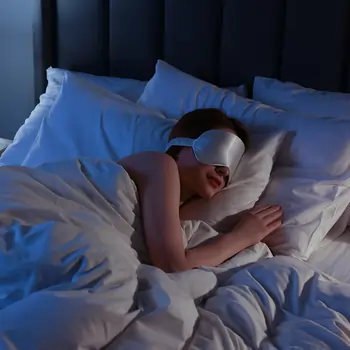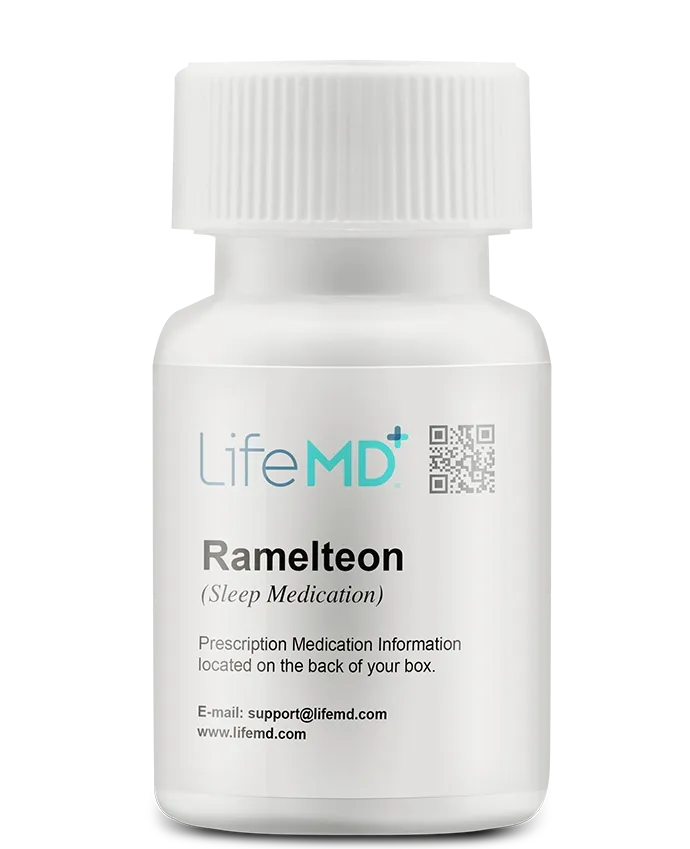What is Short Sleep Syndrome?
Statistics from the Centers for Disease Control and Prevention (CDC) reveal that 35% of adults in the U.S. are not getting the required amount of sleep each night.
This is bad news as we need sleep to help us function properly. In fact, sleep is so important it’s regarded as the third pillar of health.
The American Academy of Sleep Medicine (AASM) recommends that adults get seven or more hours of sleep per night — however, there are people who can still function well on less.
A very small percentage of the world’s population are short sleepers — some studies say around 1%.
In this article, we’ll explain what short sleep syndrome is, and how to tell whether you have it or whether you’re simply sleep-deprived.
Tired of restless nights?
Don’t let insomnia hold you back. Take the first step towards better sleep with LifeMD.


What is a Short Sleeper?
A short sleeper is a person who requires fewer hours of sleep — typically between four to six — and can still function normally and even thrive on limited periods of rest.
Short sleepers typically go to bed and wake at the same time, whether it’s a weekday or a weekend.
They feel alert during the day and do not struggle with sleep deprivation — despite fewer hours of sleep.
Short sleep is not considered a sleep disorder such as insomnia. Natural short sleepers do not need treatment for short sleep syndrome, but people who still feel tired on fewer than six hours of sleep, may in fact be suffering from sleep deprivation.
Why Do Some People Need Less Sleep?
There are many factors that affect the number of hours you sleep, including your age, medications, sleep disorders, and alcohol and caffeine consumption.
According to the CDC, babies and younger children require the most hours of sleep per day, with teens, adults, and older adults needing fewer hours. Seven hours is the minimum recommended number of sleep hours adults should get.
The discovery of rare gene mutations may explain the reason why certain people need less sleep to function.
The short sleep genes include:
DEC2: This gene causes short sleepers to remain awake for longer.
ADRBI1 and NPSR1: These genes modify the brain’s neurotransmitters (messengers), creating shorter sleep cycles.
Short sleep syndrome may be hereditary, but more research needs to be done on this.
Do short sleepers live longer?
A recent study on the genes that promote short sleep found that people who are natural short sleepers reap several benefits of sleeping fewer hours per day — including living longer.
Your short sleep duration may also be responsible for:
Giving you increased optimism and energy.
Making it easier for you to multitask and withstand pain.
Giving you better quality of sleep.
Protecting you from jet lag.
How Do I Know if I’m a Short Sleeper?
Short sleepers don’t typically seek medical attention, because their condition doesn’t affect their sleep quality or their ability to complete daily tasks. In fact, natural short sleepers often benefit from their condition — who wouldn’t want more hours in their day?
Therefore, a medical diagnosis is not required for short sleeper syndrome. Only people with disorders that adversely affect their sleep quality — such as insomnia, sleep apnea, or narcolepsy — require medical treatment.
If you’ve been getting by on fewer than seven hours of sleep each night, here are some other symptoms that may indicate that you’re a natural short sleeper:
You sleep between four and six hours every single day, even when you can sleep in.
You’ve had the same sleep pattern for most of your life.
Trying to sleep more than six hours leaves you feeling sluggish or unproductive.
You experience no daytime sleepiness.
You awake feeling refreshed and well rested.
You’re able to fall asleep easily.
You don’t experience nighttime disturbances.
You have a high reward drive.
You engage in really stimulating activities during the daytime.
Who are Some Famous Short Sleepers?
If you’re a part of that 1% of the population with a short sleep gene, you may be interested to know that some very prominent people are also night owls.
Some of these public figures and celebrities even regard their short sleep cycles as the key to their success, claiming they were able to accomplish more because time wasn’t lost through sleep.
Famous short sleepers include:
- Barack Obama
- Bill Clinton
- Albert Einstein
- Thomas Jefferson
- Thomas Edison
- Elon Musk
- Lady Gaga
- Rihanna
- Marissa Mayer
- Martha Stewart
- Jay Leno
Short Sleep vs. Sleep Deprivation: What are the Differences?
Although short sleepers and those who are sleep deprived both get fewer than the required number of hours of sleep, there are some clear distinctions between the two conditions.
We’ve compared them in the table below so it’s easier for you to identify which symptoms you have:
Short Sleepers | Those Who Are Sleep Deprived |
Need less than six hours of sleep each day. | Get less than seven or six hours of sleep each day. |
Have the ability to fall asleep easily and enjoy quality deep sleep. | Have sleep patterns that are often disrupted. |
Have a consistent bedtime, i.e. going to bed and waking at more or less the same time each day. | Experience disruptions that prevent restful sleep. |
Feel fine on fewer hours of sleep and display no signs of irritation, fatigue, or impaired functioning. | Experience daytime sleepiness, moodiness, and a tendency to constantly yawn and doze off. |
Waking up feeling refreshed. | Have lower concentration and compromised hand-eye coordination. |
May thrive on very little sleep and feel irritable or sluggish if they try to sleep more. | Experience food cravings, anxiety, irritability, dark undereye circles, fatigue, emotional instability, and increased risk of accidents. |
How Do I Know If I’m Getting Enough Sleep?
Feeling healthy and well rested are two of the most obvious signs that you’re getting enough good quality sleep.
Here are some more signs that can tell you if you’re getting the right amount of rest each night:
You don’t feel like you need more sleep after you wake up.
You’re able to wake up without depending on an alarm clock.
You don’t require caffeine to get you up and running.
Maintaining your weight is fairly easy, and you’re not craving junk food.
Your mood is positive most of the time.
What are the Health Effects of Short Sleep Syndrome?
Though more research is needed, at present there are no negative health effects associated with short sleep syndrome.
However, not all people who sleep for less than seven or six hours per day are natural short sleepers.
There are several other reasons you may not be getting the sleep your body needs each night, including:
You have poor sleep hygiene — in other words, you don’t have a good sleeping environment or daytime schedule that makes it easier for you to doze off at night.
You have a sleep disorder.
You’re drinking too much caffeine.
You suffer from stress or anxiety.
You aren’t eating a balanced diet or getting enough physical exercise.
Long-term use of sleep medicine has affected your sleeping patterns.
If you experience any of the symptoms of sleep deprivation mentioned above, make an appointment with your doctor.
What are the Dangers of Not Getting Enough Sleep?
The short-term effects of sleep deprivation range from daytime sleepiness and irritation, to emotional instability and an increased risk of accidents happening. But there are also long-term consequences of not getting the right amount of sleep each night.
If your sleep debt (when you sleep fewer hours than your body needs) keeps increasing, the following may occur:
You may get sick more often.
Your risk of heart disease, cancer, high blood pressure, and diabetes may increase.
You may gain excess weight.
Your libido may decrease.
Your risk of injury may increase.
You may become depressed.
Where Can I Learn More About Improving Sleep Quality?
Tired of not getting enough sleep? Don’t let insomnia control your nights. LifeMD-affiliated physicians can prescribe FDA-approved, non-addictive medications to help you fall asleep faster. Start your treatment today.














